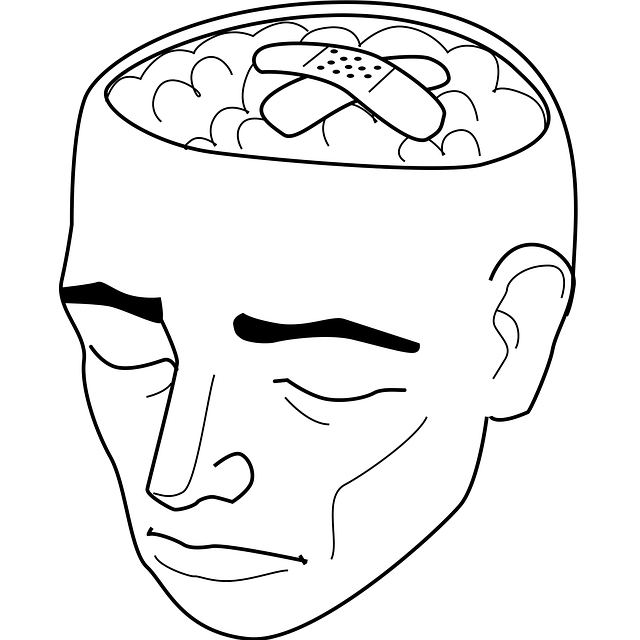Mental health policies play a pivotal role in shaping care accessibility and quality, with Castle Rock Interpersonal Issues Therapy (CRIIT) as an effective strategy. CRIIT tackles interpersonal relationships' impact on emotional well-being, using techniques like safe spaces, active listening, open-ended questions, and crisis intervention. By fostering community engagement, reducing stigma, and promoting social support, CRIIT advocates for holistic mental health policies. Policymakers can improve care delivery by assessing current programs' effects, addressing barriers like insurance coverage and cultural sensitivity, and leveraging CRIIT to enhance connections between communities and mental health services.
Mental health policy analysis and advocacy are essential components in ensuring equitable access to quality care. This article explores key aspects of mental healthcare, including the impact of policy on access, interpersonal issues in therapy, and innovative approaches like Castle Rock Interpersonal Issues Therapy (CRIIT). We review current policies’ effectiveness and highlight strategies for advocacy, focusing on reforms that bridge gaps in mental health services. By delving into these areas, we aim to enhance understanding and drive positive change through effective policy analysis and CRIIT’s role in advocacy.
- Understanding Mental Health Policy and Its Impact on Access to Care
- Identifying Interpersonal Issues in Therapy: Challenges and Strategies
- The Role of Castle Rock Interpersonal Issues Therapy (CRIIT) in Policy Advocacy
- Analyzing the Effectiveness of Current Mental Health Policies: A Comprehensive Review
- Building Bridges: Effective Advocacy Strategies for Mental Health Reform
Understanding Mental Health Policy and Its Impact on Access to Care

Mental health policies play a pivotal role in shaping access to care and support for individuals struggling with their emotional well-being. These policies influence the availability and quality of services, including Castle Rock Interpersonal Issues Therapy, which addresses complex interpersonal relationships and their impact on mental health. By implementing evidence-based strategies, governments can enhance the accessibility and affordability of therapy, ensuring more people receive the necessary care.
The impact of effective policy goes beyond improving access; it fosters Mental Health Awareness and promotes Emotional Healing Processes. It encourages communities to embrace Emotional Intelligence, enabling individuals to recognize and manage their emotions effectively. Ultimately, these policies contribute to a more holistic understanding and support system for mental health, creating an environment where people feel empowered to seek help and recover.
Identifying Interpersonal Issues in Therapy: Challenges and Strategies

Identifying interpersonal issues in therapy is a nuanced challenge that requires therapists to navigate complex dynamics between clients and their support systems. These issues often manifest as barriers to effective treatment, such as strained relationships, social isolation, or difficulties communicating emotions. In Castle Rock Interpersonal Issues Therapy, professionals must employ strategic approaches to uncover and address these hidden challenges.
One key strategy involves fostering a safe and non-judgmental environment where clients feel comfortable discussing interpersonal problems. Therapists can utilize techniques like active listening, empathy, and open-ended questions to encourage introspection and self-reflection. Additionally, crisis intervention guidance and resilience-building exercises can empower individuals to manage interpersonal stress and seek support when needed, ultimately contributing to improved anxiety relief and overall well-being.
The Role of Castle Rock Interpersonal Issues Therapy (CRIIT) in Policy Advocacy

The Castle Rock Interpersonal Issues Therapy (CRIIT) model offers a unique and powerful tool for mental health policy advocacy. This therapeutic approach focuses on interpersonal relationships, aiming to enhance understanding and empathy among individuals dealing with mental illness. By fostering connections and promoting social support, CRIIT can significantly contribute to reducing the stigma associated with mental health issues. The therapy’s emphasis on community engagement and building bridges between individuals with diverse backgrounds is particularly valuable in policy circles. It encourages a holistic view of mental healthcare, moving beyond individual treatment to consider the broader social context.
CRIIT’s potential extends to advocacy efforts, especially when coupled with effective community outreach programs. This strategy enables policymakers to understand the lived experiences of those affected by mental illness, leading to more empathetic and informed decision-making. The implementation of such therapy models can facilitate meaningful dialogue, ensuring that policy changes reflect the needs and perspectives of communities most impacted by mental health challenges. Thus, CRIIT serves as a catalyst for transformative policy advocacy, aiming to improve access to quality care while addressing societal barriers related to mental illness.
Analyzing the Effectiveness of Current Mental Health Policies: A Comprehensive Review

Analyzing the effectiveness of current mental health policies involves a thorough review of existing programs and their impact on various aspects of care. This includes assessing access to services, affordability, and the quality of treatment available. For instance, while Castle Rock Interpersonal Issues Therapy has gained recognition as an effective approach for addressing interpersonal conflicts and enhancing emotional healing processes, its widespread adoption faces challenges related to insurance coverage and provider availability.
Moreover, a comprehensive review should consider cultural sensitivity in mental healthcare practice and the role of social skills training. These elements are crucial in ensuring that policies cater to diverse populations, address systemic inequalities, and promote inclusive care. By examining these factors, policymakers can gain valuable insights into areas requiring improvement, leading to more effective mental health strategies that better serve individuals seeking support for their interpersonal issues and overall emotional well-being.
Building Bridges: Effective Advocacy Strategies for Mental Health Reform

Building bridges between communities and mental health services is a key strategy for advocating effective reform. By employing Castle Rock Interpersonal Issues Therapy, advocates can foster stronger connections between individuals, families, and support systems, ultimately enhancing access to care. This approach recognizes the importance of understanding interpersonal dynamics and how they impact mental well-being. Through such therapy, barriers that often exist due to stigma, lack of awareness, or cultural differences can be addressed.
Integrating Mind Over Matter Principles into advocacy efforts further strengthens this bridge-building process. By promoting stress management workshops organized by like-minded organizations, communities can learn practical Stress Reduction Methods to mitigate the impact of interpersonal issues and improve overall mental health. This collaborative approach not only empowers individuals but also fosters a collective understanding of the importance of mental well-being in everyday life.
Mental health policy analysis and advocacy are essential components in ensuring equitable access to care. By understanding the impact of policy on care delivery, identifying interpersonal issues in therapy, and employing effective advocacy strategies, we can significantly advance mental health reform. The review highlights the need for policies that support evidence-based practices, such as Castle Rock Interpersonal Issues Therapy (CRIIT), to address complex interpersonal challenges faced by individuals seeking treatment. Through comprehensive analysis and collaborative efforts, we can navigate the complexities of mental health policy and create a more inclusive, effective, and supportive system.














